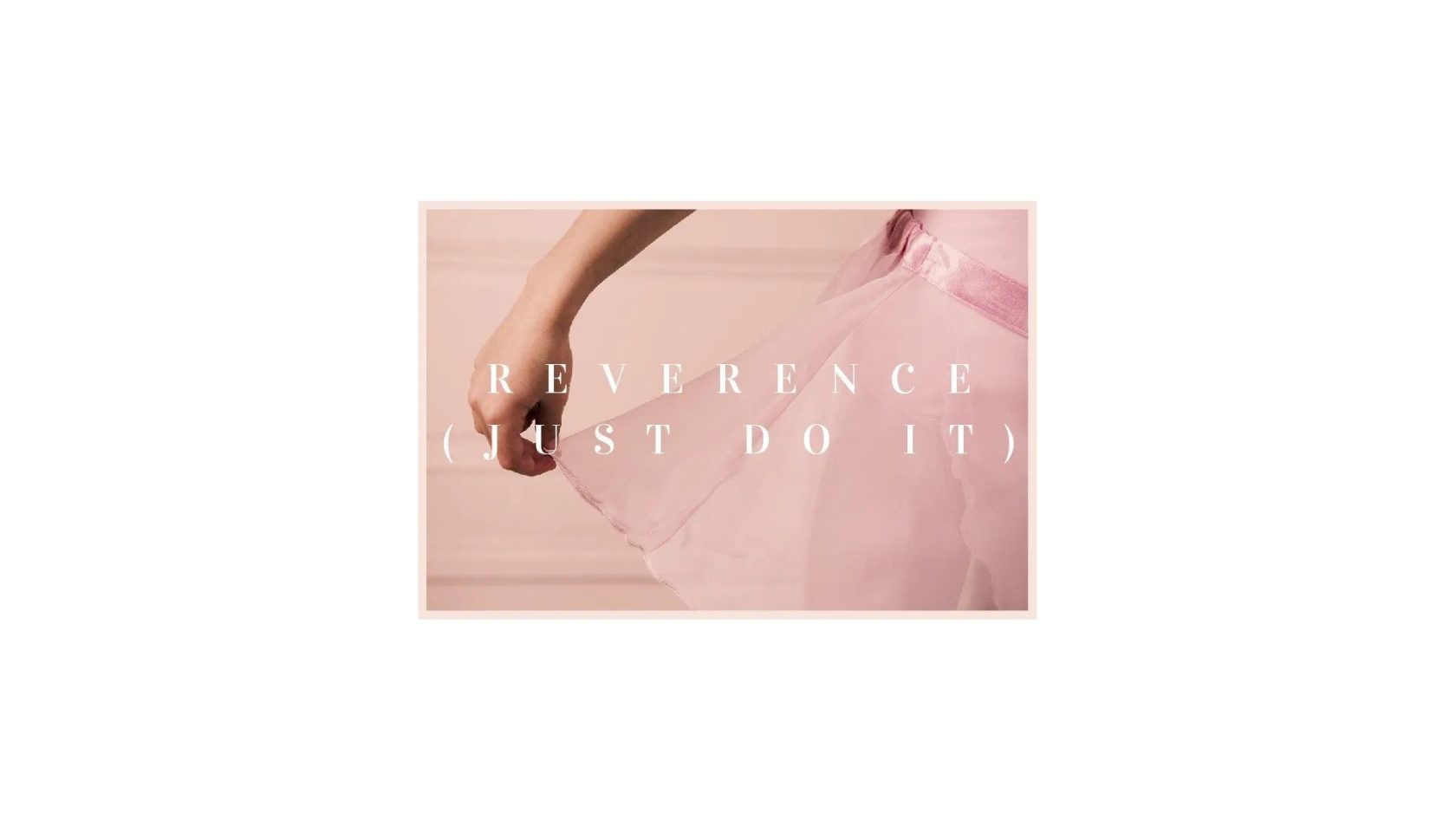Ever taught a class or in a studio where the students haven’t been exposed to reverence? When you attempt to do that portion of class they react in a most awkward way. When they realize you expect them to applaud—oh my, the awkward level shoots through the roof.
What is that about?
I honestly have no idea. I suppose it is because it is foreign to them because it is especially bad with “experienced” dancers. The younger ones look awkward for a moment or so and then follow your lead. But those older ones? Man, they are a tough crowd.
Obviously, each teacher should handle each scenario in the way they feel is best. But, for me, I have reached a point where I pretty much have stopped caring if they are awkward or how they feel about it in general. Do I care how they feel about turning out properly? No. Do I care how they feel about articulating the feet? No. Do I care how they feel about keeping the arms placed in front of the body? No. So then why should I care how they feel about finishing class properly?
I don’t mean to sound harsh or uncaring. Of course I care about my students and the experience they have in my class. Nearly everything I write about teaching ballet concerns factoring in the students’ feelings and individual needs. However, this reverence thing is so small. Spotlighting their feelings around it would likely only make it more awkward and uncomfortable. It would also teach them their feelings trump everything. Which is definitely not true for any part of life.
We ask our students to do a great deal. To put themselves out there completely. Embrace mistakes. Don’t fear failing. Take corrections, but not personally (a concept that requires a certain degree of maturity and confidence). Be vulnerable. Tell us your dreams. Show us your weaknesses. We ask so many things. So many very difficult things. As well we should. These things mold ballet dancers and create artists.
But reverence? This is such a small ask. Teeny tiny! Ladies curtsey, gentleman bow, thank the teacher, and everyone applaud. Then go away. So small! But so significant. It honors the process. It closes out the class with grace. It respects the art. And it supplies us with a healthy dose of dignity. No matter what happened in class—the mistakes, the mental struggles, the emotional storms—reverence wraps it all up and says “You did well. You finished. You are still standing. Be proud of your work and carry on.”
Small, but significant.
So my tip for helping your students feel better about reverence? Just do it. They will come around. I don’t even feel the need to explain the why behind reverence because the why is baked right in. They will come to understand the more they do it. Eventually there will only be all good things in their reverence and that will be because you just kept doing it.
Related Articles


Comments
No comments for this post.
Add Comment